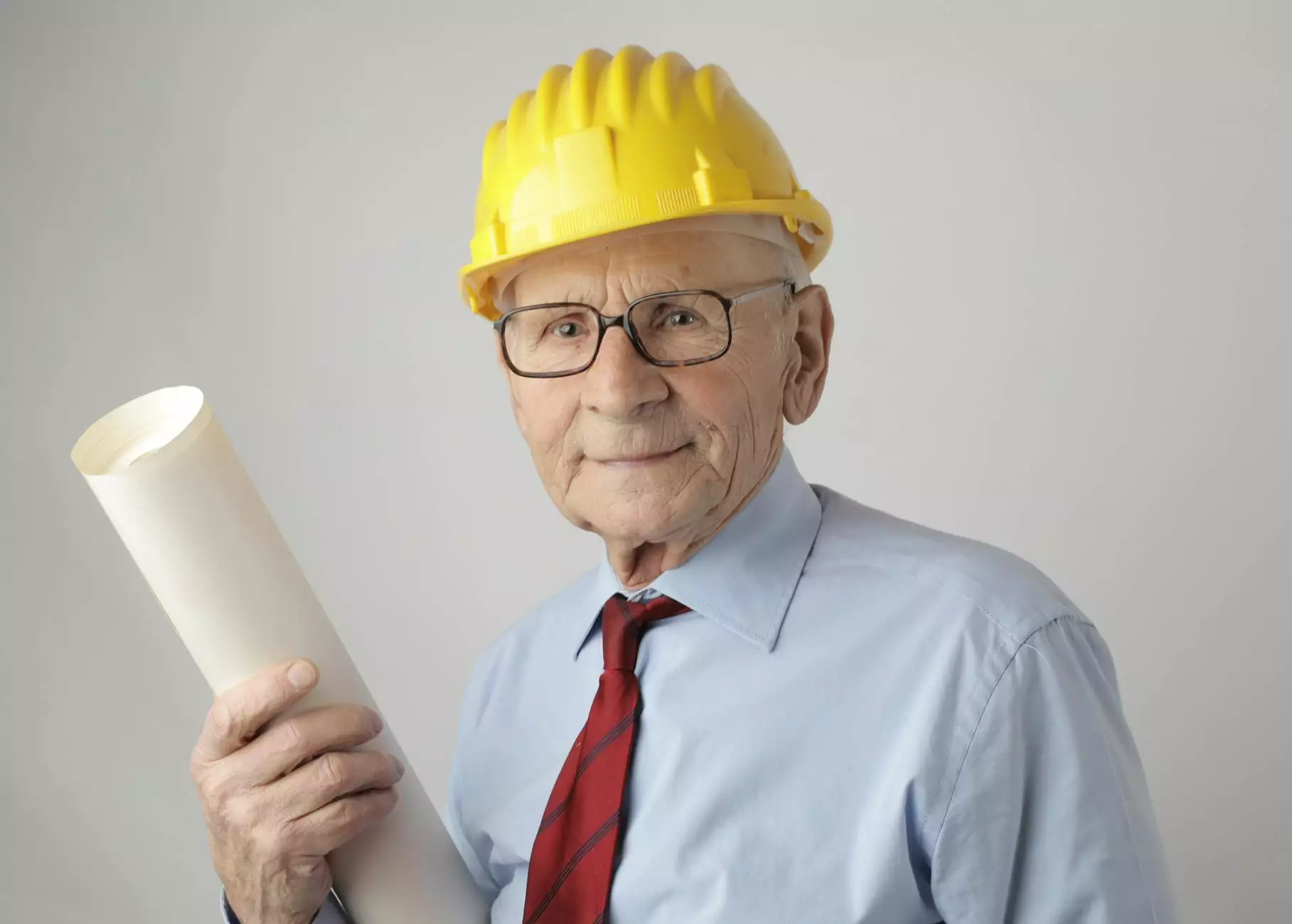Revolutionizing Interior Design Business: Embracing Insulated Concrete Forms Home Plans for Superior Residential Spaces

In the dynamic landscape of interior design, innovation and sustainability are paramount to standing out in a competitive market. Fry Design Co, a leader in the interior design industry, continues to pave the way by integrating groundbreaking construction methodologies, notably insulated concrete forms home plans. This comprehensive exploration delves into how forward-thinking business practices, underpinned by advanced building techniques, are transforming the residential interior design paradigm.
The Significance of Innovation in the Interior Design Business
In today’s rapidly evolving market, interior design companies must continuously adapt to emerging technologies and client demands. Innovation is no longer optional but essential for maintaining a competitive edge. Incorporating novel construction methods such as insulated concrete forms (ICF) allows design firms to offer unparalleled value to homeowners, emphasizing durability, energy efficiency, and aesthetic flexibility.
Why Innovation Matters in Interior Design
- Enhanced Sustainability: Modern clients prioritize eco-friendly solutions, and ICF structures significantly reduce energy consumption.
- Superior Durability: These home plans provide robust, long-lasting frameworks resistant to natural disasters and structural wear.
- Energy Efficiency & Cost Savings: Better insulation leads to lower utility bills, appealing to cost-conscious consumers.
- Aesthetic Versatility: ICF allows for flexible architectural designs, from modern minimalist to traditional styles.
- Market Differentiation: Offering ICF-based home plans sets a business apart as a leader in innovative and sustainable construction solutions.
Deep Dive into Insulated Concrete Forms Home Plans
At the core of forward-thinking residential interior design businesses is the emphasis on insulated concrete forms home plans. These plans utilize a specialized construction method where hollow foam blocks are stacked to form the mold for poured concrete walls. This approach results in structures that are inherently energy-efficient, structurally resilient, and environmentally friendly.
What Are Insulated Concrete Forms?
Insulated concrete forms are a system of interlocking foam blocks, often made from expanded polystyrene or other insulating materials. During construction, these forms are stacked, reinforced, and then filled with concrete. Once cured, they form continuous, highly insulated walls that excel in thermal regulation and soundproofing.
Advantages of Using ICF in Home Plans
- Exceptional Insulation: ICF walls have high R-values, providing superior thermal insulation that effectively reduces heating and cooling costs.
- Enhanced Structural Integrity: The combination of reinforced concrete and insulating foam creates buildings resilient against hurricanes, earthquakes, and fire hazards.
- Energy Efficiency: Improved insulation results in reduced energy use, contributing to lower bills and a smaller carbon footprint.
- Soundproofing Capabilities: ICF walls significantly diminish noise transfer, creating quiet, peaceful living environments.
- Quick Construction Times: Modular forms speed up build processes while maintaining high precision and quality.
- Design Flexibility: ICF systems accommodate various architectural styles, from open floor plans to intricate facades.
Designing Beautiful and Functional Homes with ICF
Integrating insulated concrete forms home plans into interior design demands a harmonious blend of structural innovation and aesthetic appeal. Fry Design Co exemplifies this balance by creating interior spaces that leverage the strengths of ICF, resulting in homes that are not only resilient and energy-efficient but also stunning and personalized.
Interior Design Considerations for ICF Homes
- Open Floor Plans: Use the structural flexibility of ICF to create expansive, airy interiors that enhance natural light.
- Natural Material Integration: Complement the robust concrete walls with warm woods, textiles, and finishes to soften the industrial appearance.
- Lighting Design: Employ layered lighting strategies to highlight architectural features and add depth to interiors.
- Color Palette: Utilize light, neutral colors or bold accent walls to accentuate the space dynamically.
- Acoustic Treatments: Incorporate sound-absorbing materials to maximize noise control within the insulated walls.
- Smart Home Technologies: Implement automation to enhance functionality and energy management.
Business Strategies for Success in the Interior Design Industry
To outperform competitors and achieve sustained growth, firms like Fry Design Co utilize innovative business practices centered around advanced building techniques such as insulated concrete forms home plans. These strategies include targeted marketing, comprehensive client education, strategic partnerships, and technological integration.
Key Business Strategies
- Emphasizing Sustainability: Highlight eco-friendly and energy-saving features of ICF-based homes in marketing campaigns to attract environmentally conscious clients.
- Showcase Client Success Stories: Demonstrate transformative projects that leverage ICF structures, emphasizing quality, durability, and aesthetic appeal.
- Partnerships with Construction Firms: Collaborate with builders specializing in ICF construction to streamline project delivery and quality control.
- Educational Content & Workshops: Offer seminars and online resources educating clients and stakeholders about the benefits of ICF home plans.
- Utilize Technology & Visualization Tools: Incorporate 3D modeling and virtual walkthroughs to help clients visualize the potential of ICF-designed interiors.
- Invest in Training & Certifications: Ensure staff are trained in the latest ICF techniques and standards, positioning the firm as industry leaders.
Future Trends in Interior Design with Insulated Concrete Forms
The future of interior design, particularly within the residential sector, is increasingly leaning toward sustainability, resilience, and technological integration. Insulated concrete forms home plans are at the forefront of this shift due to their unrivaled benefits. As building codes evolve and consumers become more conscious of environmental impacts, adopting ICF methodologies will be crucial for design firms seeking to maintain relevance and leadership.
Emerging Trends to Watch
- Integration of Renewable Energy Systems: Solar panels, home batteries, and smart energy management will complement ICF homes’ efficiency.
- Smart Home Automation: Advanced systems for lighting, security, climate, and entertainment will be seamlessly integrated into ICF structures.
- Biophilic Design: Incorporating natural elements and maximizing daylight within resilient, insulated shells.
- Advanced Finishing Technologies: Use of new materials and techniques for achieving more refined and personalized interiors inside durable ICF shells.
- Global Adoption: Expanding the reach of ICF home plans into various markets due to their cost-effectiveness and resilience against climate challenges.
Conclusion: Leading the Industry with Innovation and Excellence
In conclusion, the integration of insulated concrete forms home plans into interior design practices marks a significant step forward in creating resilient, energy-efficient, and aesthetically appealing homes. Fry Design Co exemplifies this pioneering approach by blending architectural ingenuity with cutting-edge construction techniques and strategic business practices. Embracing these innovations will not only meet the demands of modern homeowners but will also position businesses at the forefront of the ever-evolving interior design industry. As the future unfolds, those who prioritize sustainability, durability, and beauty—anchored by advanced building methods like ICF—will lead the charge toward a smarter, greener, and more stylish residential landscape.









